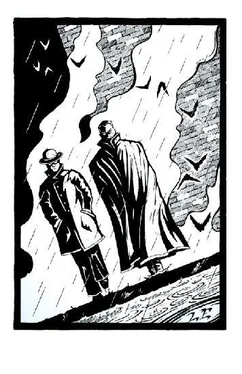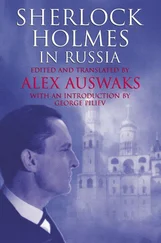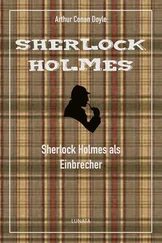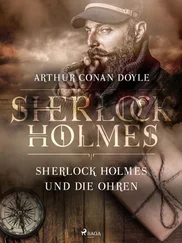Swann was gone when Brabbins arrived back at Holmes’ house. Evening was closing in, so Brabbins couldn’t blame the man. He had gone to … what? A Mrs. Swann? Some doughty housewife warming slippers and a meal in a tiny kitchen? Brabbins smiled at the image and wondered how the man would tell his wife of his day, of bodies and detectives and rooms full of papers and a study that was cluttered and claustrophobic and smelled like spoiled humanity. Perhaps the man was a widower, and would sit in a dark and lonely home, talking to no one but himself. Brabbins supposed he should have asked, had a conversation with the man, but had long ago realized that he wasn’t inclined to that sort of thing. Those things were distractions, getting in the way and watering down his attention. The case was all; the dead man and the cause of his death.
Before leaving, though, Swann had made a start on the papers from the parlour. Piles of them were out of the folders and on the floor, and more were on the table in the kitchen. The man hadn’t left a note, which Brabbins took to mean that he had found nothing of interest. Most of the piles in the parlour itself were more requests for help, from all over the world. Each had the word ‘No’ written at the bottom, solid and emphatic.
The pile in the kitchen looked to be more recent, invoices and household bills. Swann had weighted this pile down with an empty cup, Brabbins saw with distaste. It had left a tea ring on the uppermost paper, a pale circle blotted across the top of an invoice for comb replacement pieces from a company in Liverpool.
Actually, Brabbins saw, the paper on the kitchen table was in two piles, one face down and one face up. They gave the impression of a job half-done, something partway complete. The cup was almost like a bookmark, he thought, a place marker to ensure that the task could be taken up from the point at which it had been left. He leafed through the face up pile presumably the unchecked ones, finding them all handwritten sheets, covered in notes and drawings.
Was this the last thing that Swann had read? Had it sparked something in the man’s brain, or had he simply reached that point and thought, That’s it, time to go home. Somehow, Brabbins didn’t think so. It was the half-finished look of the piled papers that did it, the sense of something partly complete, not abandoned but simply interrupted. Swann was old, yes, had struck him as inexperienced, yes, but lazy and inefficient? No.
So, if something had flared in the man’s mind, what had he done next? And where was he now?
Brabbins stood and went walking, slowly pacing the length of the hallway, going into the parlour and the lounge and finally coming to the bottom of the stairs. Nothing had changed; at least, nothing that gave Brabbins pause. Upstairs? The papers on the steps had been placed back into their piles, he saw, but one had a sense of ruffledness , as though it had been sifted through and then placed down. Swann? Brabbins looked through the pile and found that it was mostly more correspondence. Why this pile above the others, he wondered. There was nothing in it of interest as far as he could see, nothing that would seem to tie into Holmes’ death. It seemed to be a set of letters between Holmes and a London publishing house, mostly about royalties. The last letter mentioned a ‘new project’, Brabbins saw, and his policeman’s instinct told him that this was the one that Swann had been interested in. It was more crumpled, placed more roughly back into the pile than the others, but why was it important? What had Swann been thinking?
The study door was open, and it had been shut when Brabbins left. He stepped inside and saw immediately that things had changed; some of the papers from the floor had gone and the others were in new piles, scattered differently. Swann read something downstairs, in the papers on the table, and it … what? Made him think? Caused some kind of realization? He came upstairs, stopped on the way and read more, read something else that confirmed his suspicions, or at least strengthened them into something more solid, and from there he came into the study and sorted through the papers on the floor. And on the desk, Brabbins saw more had gone from there, as had the smoker from the floor and some of the smoker fuel. The matches were still on the desk, though. He wanted some of the papers, others not, and then he left the study, left the house. But to where?
The garden was a frayed mess of shadows and night. The light escaping from the doorway around Brabbins lost its strength as it stretched away, soaking the lawn from a rich green to a torpid, heavy grey. The plants and bushes that lined the lawns were little more than blacker streaks in a night that was lightless and warm. There was a smell in the garden, a mingled scent of exhaling plants and clean earth.
And something burning, or burned.
Brabbins walked cautiously down to the edge of the lawn and started across it. As he moved deeper into the shadows, the smell of burned things became stronger and he heard a noise, a somnolent hum. He raised his lantern, letting the pale light dance across the ground ahead of him. More lawn. He had the sense of it widening around him, opening out to become a field; the grass felt longer under his feet, the ground rougher, less cultured. The smell had changed as well, shifting from the sweet breath of flowers to the denser, richer aroma of roots and soil and wood.
Brabbins felt exposed here, as though he had swum further out from shore than he realized, to where the water suddenly went cold and the waves were made of stone rather than cotton. He turned, looking back towards the building and the pale squares of light falling from the kitchen windows and doorway as he walked. The distance between him and Holmes’ house stretched, dark and sly, and then he realized that the sound had changed and that shapes were emerging from the gloom about him.
They were low and hard-edged, paler smears in the darkness revealed by his approach. The low sound had changed as well, had shifted and become less rested, more anticipatory, although anticipatory of what Brabbins could not tell. Whatever it was that was making the sound, he had the impression that it knew he was there, was watching him carefully, judging and gauging and waiting. It was a grating buzz, oddly metallic and sharp, and it scraped across his exposed skin like a toothache. He turned slowly back around, completing a full circle with the torchlight leaping ahead of him and about him like an inquisitive tongue. There were six of the shapes, solid white boxes on little legs, set at irregular intervals across a pasture of some kind. The noise came from all the shapes at once. He took a cautious step back, feeling his way with his heel because he suddenly, definitely , did not want to turn his back on the boxes.
They were hives. He was a city boy, true, but even he recognized the slatted shapes of beehives. There were no bees, at least none that he could see, but he assumed that it was the creatures making the sound inside the hives. He took another backwards step and the sound rose in pitch, cold and glitteringly alert. He had heard bees before, enjoyed their warm hum in the air around him in summer gardens, but this noise was something different. It was ferocious, a noise of warning and threat. Another step, and he was at the edge of the pasture, almost out from the hives. Their pallid shapes seemed to face him as he went, horridly observant and aware. Another step, another. Another and his questing heel bumped into something that rolled and gave under him, and his balance yawned wildly for a moment and then he fell. The torch bounced to the ground by his head, dancing and jittering before it settled and the beam came to rest on what he had fallen over, and Brabbins saw it and screamed.
Читать дальше












